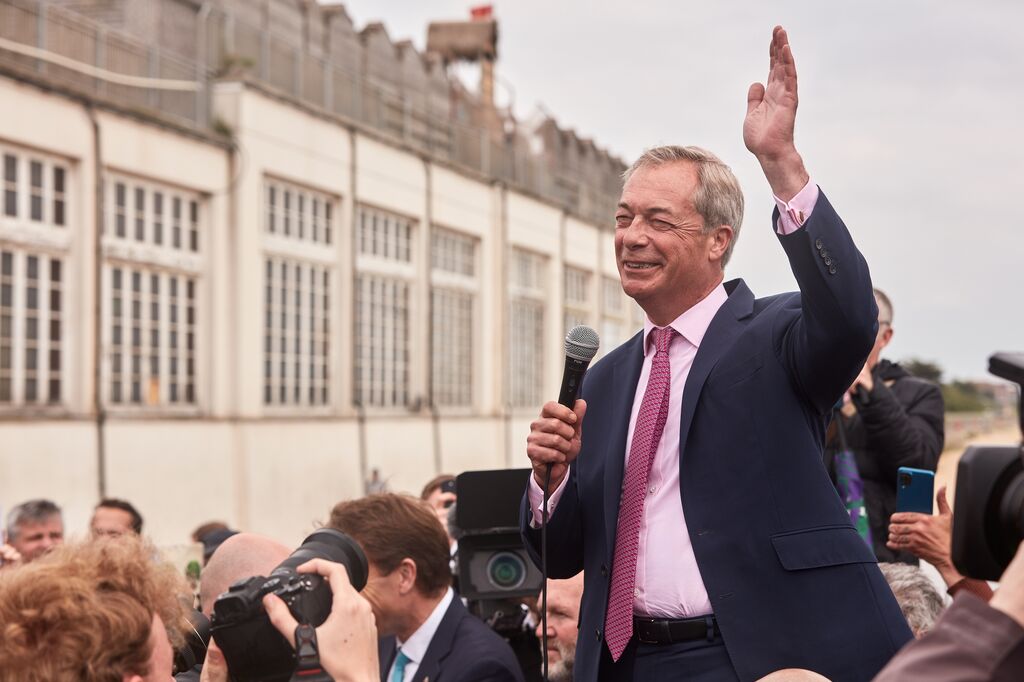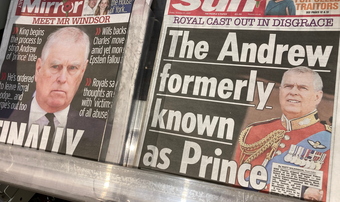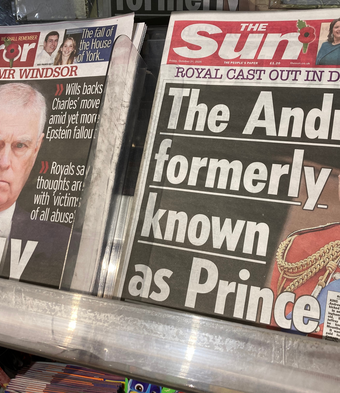Five lessons from the Council Election results

The local elections held across England on May 1 have once again revealed the shifting sands of our political culture.
Turnout was patchy, with broadly around 2 or 3 in 10 eligible voters voting on Thursday (the exception being the by-election turnout of 49% which is hardly remarkable). Familiar parties faced rebuke, and Reform UK made notable gains.
But beyond the headlines and the myriad of local personal stories that you will probably never hear about, Christians should take a moment to reflect on the lessons we can draw from these elections, because I think there are important warning signs that we must heed.
I wonder how you felt about these elections, or how you feel about politics in general right now?
Is it to lean into your party loyalty and to see challenges and problems solely through your party lens, with the problem being those of different political viewpoints (whether it is the woke liberal progressive, or right-wing reactionary)? Perhaps you feel angry, let down by mainstream politics and the state we are in? Maybe your default is simple apathy about the current state of politics and politicians. These reactions do, after all, seem to be how the vast majority of our neighbours are responding to politics and politicians in 2025.
We, however, are called to be disciples of Jesus, committed to the common good, and if we see this as our primary identity, then our reaction and actions will be counter-cultural and at odds with the positions I have described above.
These are things I have been reflecting on more than usual this week, because in three weeks’ time I will be in Poland, speaking to a group of European Christian leaders about why Christians need to take threats to democracy and democratic institutions seriously. And as I have been reading, praying, reflecting and writing on this theme the early headlines from the elections in England struck me as another warning in a long line of warnings, going back at least ten years, about the declining health of our public square and politics, and how this is a serious matter for Christians and the church.
So let me draw out five lessons and responses that we should take away from this week’s elections and use to flavour our conversations, guide our actions, and direct our thoughts and prayers going forward.
1. People Are Hungry for Change — But Change Must Be Rooted in Hope, Not Fear
The rise of Reform UK and the decline of traditional party loyalties show that many voters are frustrated. They feel unheard, overlooked, and alienated. As Christians, we must never dismiss this pain or even this anger. The first rule of Christian engagement in the public square is to be inquisitive, and to listen respectfully to others’ experiences and viewpoint.
The desire for things to change for the better is good, but as we and our neighbours seek change, we must also ask: where is this desire for change being directed?
Movements that thrive on grievance risk reinforcing a politics of fear and division. The Gospel calls us to something better: a politics of hope grounded in the unshakeable dignity of every person made in the image of God (Genesis 1:27). If we are to advocate for change, it must be change that heals, not fractures.
2. Democracy Requires More Than Ballots — it Needs Character and Community
Low voter turnout is often seen as apathy. But beneath the surface lies a deeper malaise: disillusionment with democratic institutions and a sense that our voices no longer matter. In such a context, the Christian witness is vital.
The Bible calls us to seek the peace and prosperity of the place where God has put us (Jeremiah 29:7). That includes not just voting, but nurturing the health of our local communities. Democracy is not sustained by systems alone - it needs citizens formed in virtues of justice, mercy, and humility (Micah 6:8).
The theologian Luke Bretherton reminds us in his book Christ and the Common Life that politics is a form of neighbour-love. Christians are called not only to cast ballots but to build trust, foster dialogue, and serve our neighbours through institutions that promote the common good.
3. We Must Renew Our Commitment to Local Institutions
One of the clearest messages from this set of elections is that national frustrations often obscure local realities. Yet it is in the parish, the neighbourhood, and the council ward where people and families experience the day-to-day effects of policy.
Andy Crouch has spoken about the power of local culture-making - the ability to shape spaces where people can flourish. When we invest in local councils, support local schools, and serve through local charities, we demonstrate a politics of presence.
This is where Christians can shine: not just in lobbying Parliament (which is still important and what CARE seeks to do faithfully, expertly and effectively), but in mentoring a young person, in helping a neighbour in need, or in serving on a school board. Although we do that as individuals, it should also be woven into the life and mission of your local church as a community of salt and light in the local neighborhood; the Church is to be a blessing to the nations, and it can start with your church being a blessing to your community, both unilaterally and working in and through local democratic and public institutions.
As James Davison Hunter writes, true cultural change comes through faithful presence -long obedience in the same direction, rooted in love, service, and sacrifice. Our calling is not to chase power, but to seek the good of the communities around us.
4. Beware the Pull of Cynicism and Tribalism
Many of us are weary of politics (although I hope you might be different if you have taken the time to read this far!). The headlines often exhaust us, and the shouting matches repel us. But if Christians retreat from public life, we leave a vacuum. Into that space can rush ideologies that neither seek truth nor uphold justice.
Richard Mouw urges us toward convicted civility - engaging passionately, but with gentleness and respect (1 Peter 3:15).
This is a time for Christians to model a better way: resisting the pull of tribalism and showing that it is possible to speak truth with love, to listen with humility, and to act with integrity. Political parties can be very important institutions in which we do politics, and there are thousands of faithful believers active in all of the main UK parties.
Nevertheless, the Christian should never put party before Jesus, or partisanship before respect for our neighbour, whatever their pollical views. Instead, we are to prioritise the common good, ahead of sectional self-interest.
5. Prayer is Political Too
Finally, we must not forget that prayer is a form of political action. When we intercede for our leaders (1 Timothy 2:1-2), we participate in God’s redemptive work. When we pray for justice, for wisdom, for peace—we align ourselves with God’s heart for His world.
Every vote matters. Every act of local service matters. Every prayer matters. The May elections are a reminder that while politics may shift, the Christian calling does not. We are to be salt and light (Matthew 5:13-16), not in word only, but also in deed. In an age of confusion, we offer clarity. In a time of fear, we bring peace. In a fractured world, we build community.
Let us not grow weary in doing good, not least by casting our votes thoughtfully and prayerfully, and praying for our elected representatives to be those who restrain evil and do good. The Kingdom of God does not arrive through elections, but it does touch down wherever Christ’s people live out their faith with courage, compassion, and conviction.






